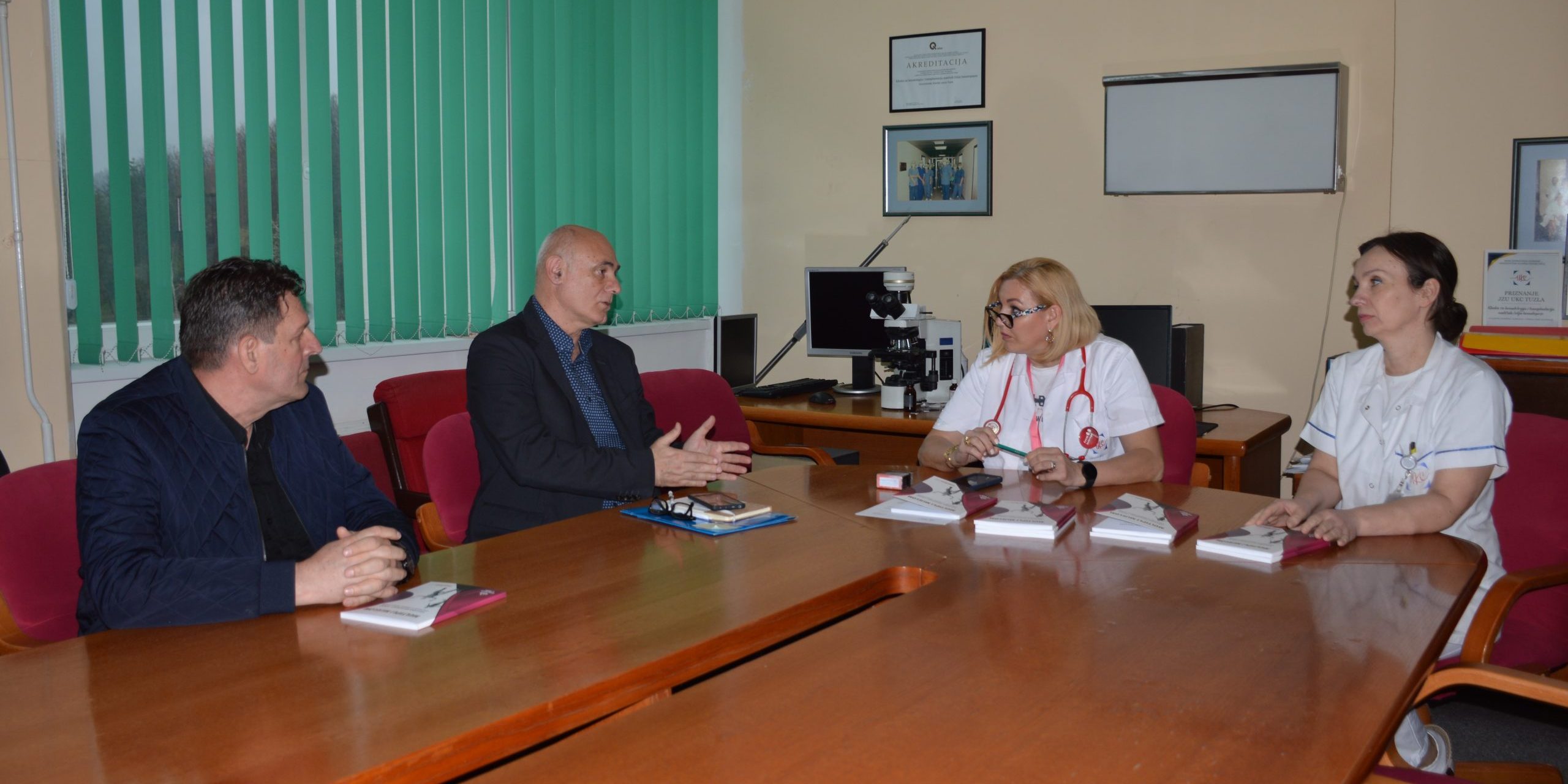Observed on the last Thursday of March, World Multiple Myeloma Day serves as an important occasion to increase awareness about this rare and malignant disease affecting the bone marrow.
Multiple myeloma is characterized by the excessive production of malignant plasma cells, which are normally a crucial part of the immune system and should make up no more than 5% of bone marrow cells in healthy individuals. In affected patients, this proportion rises to 10% or more, with abnormal plasma cells producing a pathological protein known as M-protein. This leads to severe complications, including damage to the kidneys and skeletal system.
Dr. Azra Jahić Žugić, internist and hematologist, and Head of the Clinic for Hematology and Stem Cell Transplantation at the University Clinical Center Tuzla (UKC Tuzla), highlighted the importance of raising awareness about multiple myeloma, stressing that early recognition of the disease is crucial for improving treatment outcomes.
“Multiple myeloma is a rare and malignant disease that requires a specialized treatment approach. At our clinic within the UKC Tuzla , we are currently treating 71 patients diagnosed with plasma cell proliferative disorders. Among them, 65 patients (91.5%) have multiple myeloma, while the remaining six (8.5%) have other rare plasma cell disorders. These include two patients with smoldering myeloma, one with plasmacytoma, one with monoclonal gammopathy of undetermined significance (MGUS), one with Waldenström’s macroglobulinemia (WM), and one with primary amyloidosis.”
Dr. Azra Jahić Žugić explained that multiple myeloma presents with a range of symptoms, including bone pain, anemia, kidney dysfunction, elevated calcium levels, and bone deterioration—ranging from osteopenia and osteoporosis to fractures, often accompanied by a markedly high sedimentation rate.
“As the disease progresses, it can also cause neurological complications, such as weakness or paralysis of the upper and lower extremities. If the spine and spinal cord are affected, some patients may suffer severe mobility impairments, potentially leading to lifelong immobility,” she stated.
Dr. Azra Jahić Žugić noted that patients treated at UKC Tuzla range in age from 40 to 86, with an average age of 65.5 years. She highlighted that one-third of patients are undergoing active treatment, while the remaining two-thirds are on maintenance therapy.
Since 2004, the UKC Tuzla has been utilizing high-dose chemotherapy combined with autologous hematopoietic stem cell transplantation for patients under 65. This approach has significantly improved treatment outcomes for multiple myeloma.
Dr. Jahić Žugić emphasized that multiple myeloma is a serious chronic disease requiring lifelong management. From diagnosis through active treatment and subsequent maintenance therapy, continuous monitoring by a hematologist is essential to optimize patient care and improve quality of life.
Dr. Azra Jahić Žugić also emphasized the crucial role of family support for patients with multiple myeloma, particularly in the early stages of the disease when many experience mobility difficulties, and a significant number are immobile at the start of treatment. “While multiple myeloma remains an incurable disease worldwide, treatment advancements have significantly improved patient outcomes and extended survival in our region. The introduction of high-dose chemotherapy, autologous hematopoietic stem cell transplantation, and targeted therapies has played a key role in this progress. Further development of innovative therapies would enhance treatment efficacy, offer patients a longer and better quality of life, and support their return to everyday activities,” she added.
Collaborative initiatives that bring together doctors, researchers, patients, associations, and non-governmental organizations—along with joint educational efforts—can accelerate the development of new therapies and improve the quality of life for patients with multiple myeloma.
“I am especially pleased that the University Clinical Center Tuzla and the Clinic for Hematology and Stem Cell Transplantation have consistently provided strong support to the Association of Patients with Multiple Myeloma and Other Rare Diseases in Bosnia and Herzegovina for many years. Through various educational programs and joint initiatives, we have worked to enhance patient care and awareness.
At today’s productive meeting, held in recognition of International Multiple Myeloma Day, we discussed several key activities. Among them, we confirmed the participation of our clinic’s medical professionals in an upcoming roundtable in Sarajevo, titled ‘Empowering Myeloma Patients: Education, Awareness, and Community Connection’. This event will serve as a valuable opportunity to strengthen collaboration, share experiences, and further improve support for patients and their families,” added Dr. Azra Jahić Žugić.
As part of the International Multiple Myeloma Day observance, the Association of Patients with Multiple Myeloma and Other Rare Diseases in Bosnia and Herzegovina continued its efforts to enhance patient support by deepening its collaboration with the University Clinical Center Tuzla.
“At today’s productive meeting with Dr. Azra Jahić Žugić, we outlined steps for further joint initiatives aimed at raising awareness and strengthening mutual support in the fight against multiple myeloma. I am pleased that we have arranged for the participation of the Clinic’s medical professionals in our upcoming event, ‘Empowering Myeloma Patients: Education, Awareness, and Community Connection’, which will take place on April 12, 2025, in Sarajevo. This gathering will serve as a platform to improve support for patients, their families, and the medical community. Key topics will include modern treatment approaches, personalized therapy, the multidisciplinary care model, and innovations in the healthcare system,” said Zlatan Planinčić, a member of the Association.
Planinčić also announced that the Association has initiated the process of joining Myeloma Patients Europe (MPE)—a leading umbrella organization uniting patient associations across Europe. This affiliation will strengthen efforts to raise awareness of myeloma and address critical issues affecting patients at the European level.







